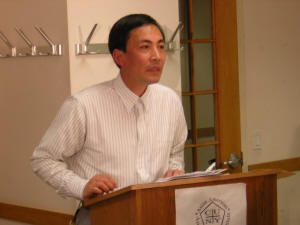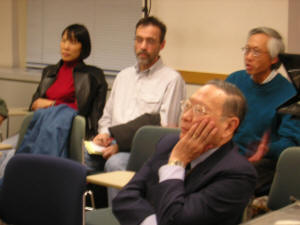Song China was a unique time in China’s history. It witnessed spectacular developments in philosophy, literature, education, urbanization, commerce, government, and sciences and technology. However, national crises abounded, too. Humiliating encounters with its neighbors both literally and figuratively dwarfed this otherwise cultural giant.
Scholars took upon themselves the responsibility of upkeeping and safeguarding the culture and society. Thus, various social, cultural, technological factors of the time interacted more immediately but also intricately with the tradition of scholarship and constituted the context in which scholars learned and grew.
The presentation will outline the patterns of interactions among these various factors as learning context and focus on the prominent scholars of the time to illustrate both the uniqueness and diversity. Linguistic features will also be highlighted in the discussion. In sum, Song scholars found themselves consciously examining their own growth and developing, through synthesis, systematic ways of learning and studying, thus set the general pace for the generations of scholars to come.



